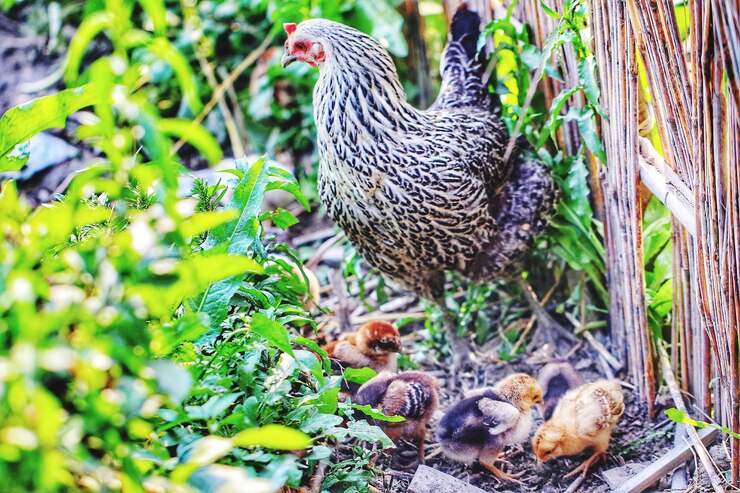Breeding chickens can be a rewarding and fulfilling endeavor, whether for commercial purposes or as a hobbyist. Among the diverse breeds available, the Wyandotte chicken stands out for its dual-purpose nature, attractive appearance, and docile temperament. If you’re considering breeding Wyandotte chickens in South Africa, here are ten essential things you should know:
1. Wyandottes: A Heritage Breed:
Wyandotte chickens are a heritage breed originally developed in the United States during the late 19th century. They are prized for their distinctive appearance, characterized by a compact, rounded body, rose comb, and striking plumage patterns.
2. Dual-Purpose Birds:
Wyandottes are renowned as dual-purpose birds, meaning they are valued for both their egg-laying abilities and their suitability for meat production. They typically lay brown eggs of good size and quality while also possessing flavorful meat.
3. Cold-Hardy Breed:
Wyandotte chickens are well-suited to various climates, including the colder regions of South Africa. Their thick, fluffy plumage provides insulation against chilly temperatures, making them resilient to cold weather conditions.
4. Variety of Color Variations:
One of the appealing aspects of breeding Wyandotte chickens is the wide range of color variations available. These include Silver Laced, Golden Laced, Blue Laced Red, Buff, Black, and White, among others. Each color variation exhibits its unique beauty and charm.
5. Selecting Quality Breeding Stock:
When embarking on Wyandotte chicken breeding, it’s crucial to start with high-quality breeding stock. Look for birds that conform to the breed standard in terms of size, shape, and coloration. Healthy, robust birds with good temperament are ideal candidates for breeding purposes.
6. Breeding for Standard Characteristics:
To maintain the integrity of the Wyandotte breed, breeders should strive to adhere to the standard characteristics outlined by breed associations such as the American Poultry Association (APA) or relevant poultry organizations in South Africa. This includes aspects like body shape, comb type, and feather coloration.
7. Proper Housing and Care:
Providing suitable housing and care is essential for successful Wyandotte chicken breeding. Ensure that breeding stock is housed in clean, well-ventilated coops with adequate space to roam and access to fresh water and nutritious feed. Regular health checks and parasite control are also crucial.
8. Breeding Program Considerations:
Establishing a breeding program for Wyandotte chickens requires careful planning and consideration. Determine your breeding goals, whether focused on egg production, meat quality, or exhibition purposes. Select breeding pairs based on desired traits and genetic diversity to avoid inbreeding.
9. Incubation and Hatchery Management:
For those interested in hatching Wyandotte chicks, proper incubation and hatchery management are essential. Invest in quality incubators, monitor temperature and humidity levels closely, and follow recommended incubation protocols. Provide adequate care for chicks post-hatch to ensure their health and wellbeing.
10. Networking and Education:
Lastly, networking with fellow Wyandotte breeders and poultry enthusiasts can provide valuable insights and support. Join local poultry clubs, attend exhibitions and shows, and participate in online forums and social media groups dedicated to poultry breeding. Continuous learning and sharing of knowledge contribute to the success and enjoyment of breeding Wyandotte chickens in South Africa.
Breeding Wyandotte chickens in South Africa offers a rewarding opportunity to engage in a time-honored agricultural tradition while contributing to the preservation of a beloved heritage breed. By understanding the unique characteristics, care requirements, and breeding considerations associated with Wyandottes, breeders can embark on a fulfilling journey of poultry breeding and conservation.
Join 'Farmers Mag' WhatsApp Channel
Get the latest Farming news and tips delivered straight to your WhatsApp
CLICK HERE TO JOIN






